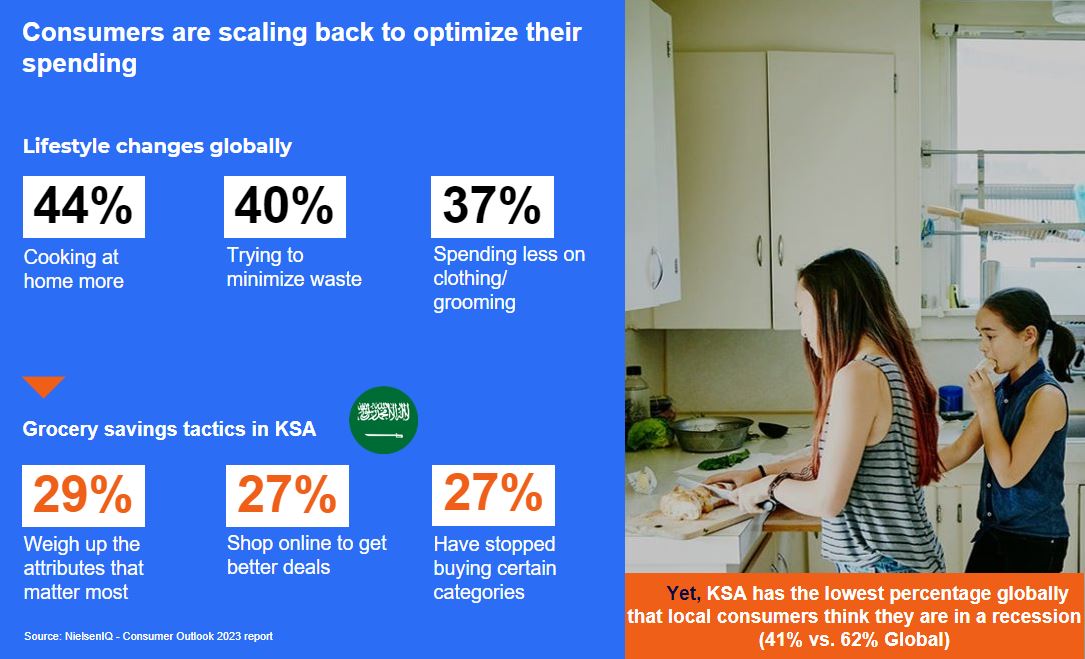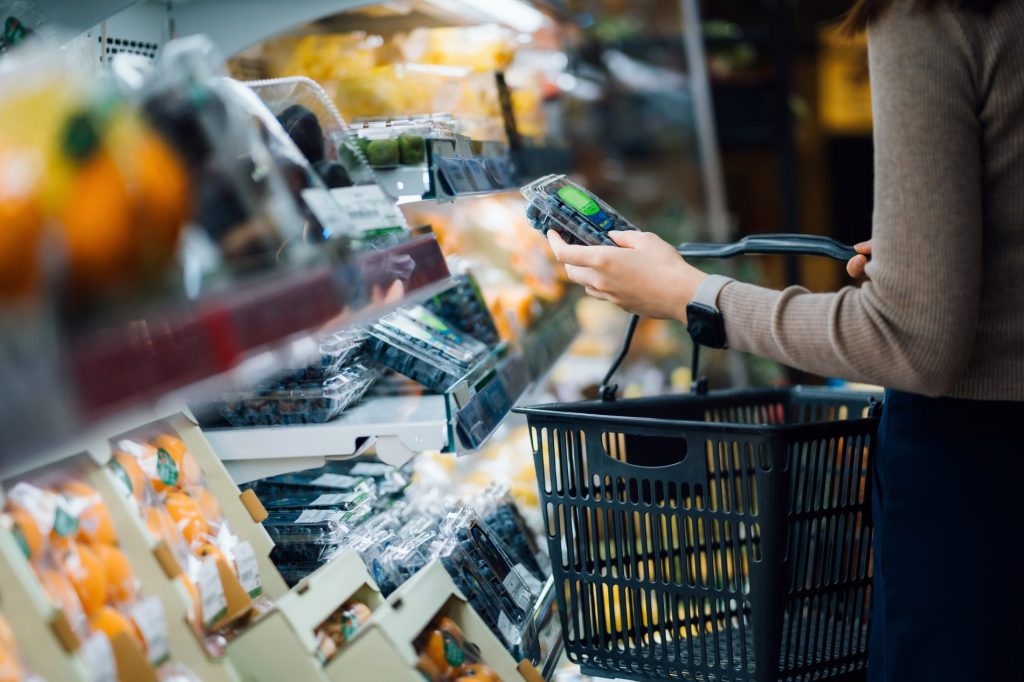Quality matters, despite inflation concerns
The first Saudi Food Show, held in Riyadh, hosted both local and international retail professionals. In Andrey Dvoychenkov’s Navigating Disruption During Times of Change presentation, he provided the latest insights into the Saudi Arabian fast-moving consumer goods (FMCG) sector.
Dvoychenkov said, “The Saudi market has recently been driven by price increases, with some prices raised by 10 to 15% during the year, which is mostly due to the rising cost of raw materials.” Dvoychenkov also highlighted the uniqueness of the Saudi Arabian market “where the majority of products and raw materials are imported, making it essential for industry players to navigate supply chain disruptions and consider local substitutes to create more stability.”

Dvoychenkov reported that, as a result, consumers in Saudi Arabia (KSA) are scaling back on spending and optimizing their budgets due to various lifestyle changes. These changes include cooking at home more often, minimizing waste, and spending less on clothing and grooming.
An interesting dynamic is that despite their intention to curtail spending, Saudi shoppers seem to care deeply about quality. The premium product segment is growing ahead of the economy segment for local and international brands in food, with 65% of Saudi shoppers saying they are willing to pay more for quality products.
Smaller format stores see faster growth
In terms of their response to the current challenging conditions they face, tactics that consumers are employing include weighing up the attributes that matter most, shopping online to get the best deals, and stopping buying certain categories of products. Interestingly, despite these changes and turbulent times, consumers in Saudi Arabia have the lowest global percentage of perceiving themselves to be in a recession.
Dvoychenkov indicated that Saudi shoppers primarily spend their shopping time in hypermarkets and supermarkets, but there is a noticeable trend of faster growth in smaller format stores, such as grocery and convenience stores. The grocery price increase is also significantly lower in these smaller format stores compared to traditional supermarkets.
The essence of essentials for modern shoppers
When it comes to choice and product selection, 77% of Saudi shoppers feel that food prices have increased and are only willing to buy essentials. Regarding the definition of “essentials” for modern shoppers, Dvoychenkov emphasized the need to be careful in how this term is perceived. To today’s shoppers, essential products include staple items like bread with health benefits using gluten-free flour that offers intrinsic benefits.
In addition, the NielsenIQ analysis highlighted the growing importance of health and wellness in consumers’ minds, with many shoppers in Saudi Arabia willing to pay more for products containing healthy supplements, supporting the immune system, and made with natural ingredients.
The soaring rise of e-commerce and convenience formats
The presentation also revealed a significant 45% growth in online sales (Q1 2023 vs. a year ago), with e-commerce playing an increasingly important role in the region. Dvoychenkov explained, “E-commerce growth is driven not only by convenience but also by an appetite for discounts. Online platforms offer a wide range of products, including ready-to-eat meals and foods catering to diverse consumer preferences.”
He added, “Convenience formats are also on the rise, with retailers like Viva, Gala, and Tamimi Express actively driving the expansion of these formats, offering everyday low prices and tailored assortments to meet consumers’ convenience-seeking needs.”
The retailers’ and manufacturers’ challenge
With the changing market dynamics, retailers and manufacturers must adapt their strategies to meet evolving consumer demands. According to Saleem Iftikhar, Country Leader for NielsenIQ in Saudi Arabia, who led a panel discussion with Chris Abboud, PepsiCo, and Shehim Mohammed, Lulu Group titled Mitigating Uncertainty, Volatility, and Cost Hikes in the Food & Beverage Industry, “Price matching, direct price-cutting campaigns, and loyalty-building initiatives are some of the propositions retailers are adopting to cater to price-conscious consumers while providing a pleasant shopping experience.”
The NielsenIQ study emphasizes the importance of offering a well-organized store with a pleasant ambiance and excellent customer service. “Consumers are increasingly seeking price and promotion-related saving strategies, and although promo efficiency has seen a slight decline, our analysis highlights the need for retailers to engage customers through various components, including price and entertainment,” concludes Dvoychenkov.

Make bold decisions with superior data
When it comes to pivotal business decisions, NielsenIQ has you covered. We provide businesses with the tools they need to maximize their performance, improve operational efficiency, and make informed decisions. Contact us today to learn more about how we can help you achieve your business goals.



